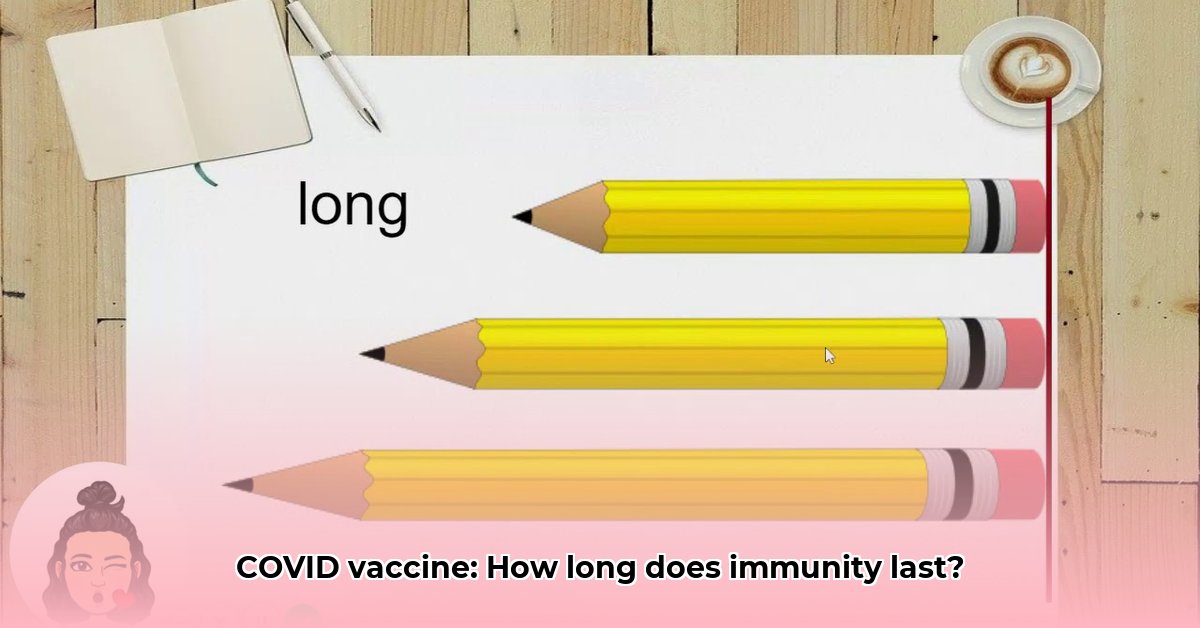
Understanding COVID-19 Vaccine Immunity: A South African Perspective
Eish, that COVID-19 vaccine – how long does its protection actually last? It’s a lekker important question, especially with new variants popping up. The good news is that the initial vaccines were highly effective, but like most things, that protection isn't a forever thing. This review will unpack the science behind COVID-19 vaccine immunity, exploring waning immunity, the role of boosters, and how different factors influence how long you're protected.
Initial Vaccine Efficacy: A Strong Start
The initial rollout of COVID-19 vaccines in South Africa saw impressive results. Studies showed high efficacy rates – often between 80% and 90% – in preventing severe illness from the original virus strains. This provided a crucial first line of defence against the pandemic. However, this initial protection is not static; it's a dynamic process.
Waning Immunity: The Reality Check
Over time, the level of protection offered by the initial vaccine doses fades. This "waning immunity" isn't a failure of the vaccine itself, but a natural biological process. Our body's immune response isn't like a light switch. It's more like a dimmer switch, gradually reducing its brightness over time. This is why ongoing monitoring and booster shots are essential.
The Role of Boosters: Replenishing Your Protection
Booster shots are designed to refresh and strengthen your immune response. They provide a significant boost in antibody levels, enhancing protection and extending its duration. Furthermore, booster formulations are often updated to target emerging variants, helping maintain effectiveness against evolving strains. Think of it as regular maintenance for your immune system's "engine."
Variability in Immunity: Every Body is Different
It's important to remember that each person's immune response to the vaccine varies significantly. Factors like age, pre-existing health conditions, and individual immune system strength influence the duration and effectiveness of protection. What works well for one person might differ slightly for another.
Impact of Variants: The Ever-Shifting Landscape
Emerging variants like Omicron and its sub-lineages present a constant challenge to vaccine protection. Some variants are more adept at evading the immune response induced by the initial vaccines. This highlights the critical need for updated booster formulations to keep pace with viral evolution. It's like a game of tag, with the virus always trying to change its appearance.
Addressing Misinformation: Facts Over Fear
Misinformation around COVID-19 vaccines, especially mRNA vaccines, is still prevalent. It's crucial to dispel myths and focus on the scientific evidence. Reliable sources like the NICD (National Institute for Communicable Diseases) and WHO (World Health Organisation) provide accurate and up-to-date information. Let's stick to the facts, and separate them from the fiction.
Different Vaccine Types: A Comparison
Different COVID-19 vaccines, such as mRNA vaccines (Pfizer-BioNTech, Moderna) and protein subunit vaccines (Novavax), utilize different mechanisms to elicit an immune response. While all are effective, the precise duration of protection and their effectiveness against different variants may vary slightly. More research is constantly being done on this.
Conclusion: Staying Protected in a Changing World
While initial COVID-19 vaccination provides strong initial protection, immunity wanes over time. Booster shots are vital for maintaining a high level of protection, particularly against emerging variants. Individual responses differ, highlighting the importance of consulting healthcare professionals for personalized advice. Staying informed about updated recommendations and vaccine strategies is key to staying protected in this ever-evolving pandemic landscape.
A Simple Timeline: Your COVID-19 Vaccine Protection
| Time Period | Protection Level | Actionable Steps |
|---|---|---|
| Immediately After | Strong initial protection against original strains | Maintain good hygiene practices. |
| 6-12 Months On | Protection starts to weaken; increased risk | Discuss booster options with your doctor. |
| Ongoing | Immunity levels fluctuate; boosters likely needed | Stay updated on official recommendations and get updated boosters when advised. |
Remember: This information is for general knowledge. Always consult your doctor or healthcare professional for personalized recommendations and to stay abreast of the most recent scientific updates.